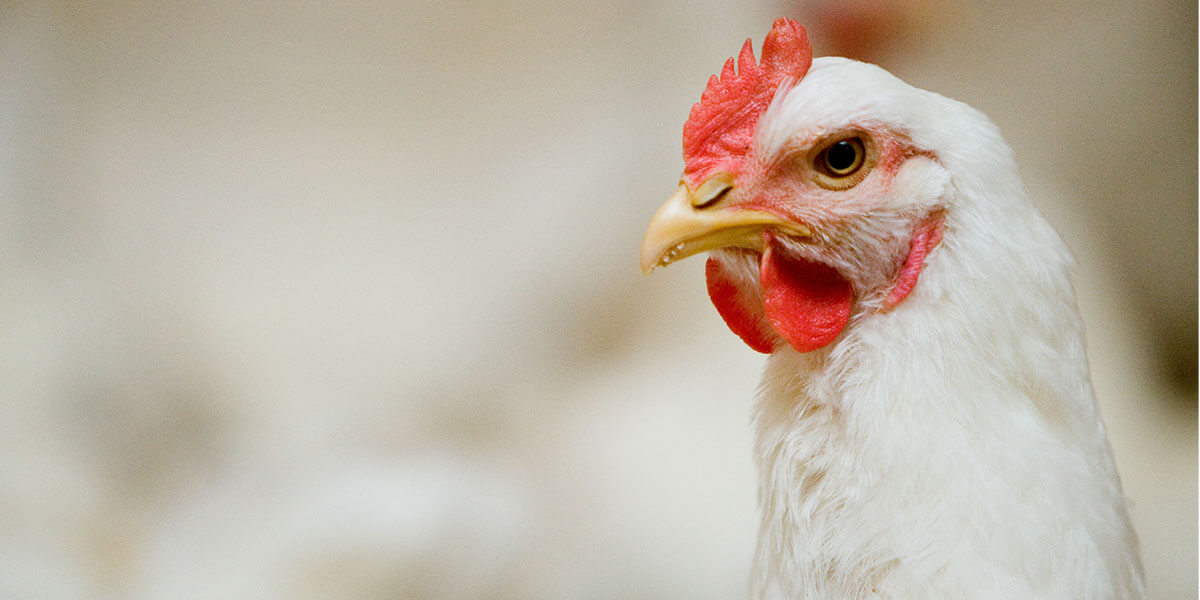There is a growing consumer market looking for antibiotic-free poultry. Total sales of organic food reached $47 billion in 2016, up more than 8 percent from 2015. Sales of organic meat and poultry grew more than 17 percent to $991 million in 2016, marking the category’s biggest yearly gain. The organic sector is still just five percent of overall sales, but it’s growing fast, which presents both pressure and opportunity for poultry producers.
To capitalize on this growing antibiotic-free market trend and produce birds that have a strong immune response to potential pathogen and toxin challenges, poultry producers are turning to performance trace minerals — zinc, manganese and copper — to fortify broilers, broiler breeders and layer natural defenses.
Trace Minerals Build Intestinal and Skin Barriers in Poultry
Trace minerals strengthen animals’ first lines of defense against disease. In the intestine, a single layer of epithelial cells forms the main barrier against pathogens … these tight junctions seal the gaps between the neighboring cells to prevent pathogen or toxin intrusions. Heat stress, dysbacteriosis or a zinc deficiency can loosen the tight junctions, allowing pathogens and toxins to permeate this barrier (Leaky Gut) and reach the bloodstream causing inflammation (Finamore et al., 2009).
The skin also provides a primary defense against disease for all humans and animals. Zinc is a key trace mineral that helps strengthen the integrity of the skin helping it to resist scratches and heal faster in the presence of cellulitis.
In a research study, the percentage of broilers affected by cellulitis was decreased from 52 to 40 percent when the broiler diet was supplemented with 40 ppm of zinc as a zinc amino acid complex. Another study showed improved footpad integrity, with 50 versus 30 percent of birds having normal footpads (Downs et al., 2000; Saenmahayak et al., 2010).
Immune Cell Function in Poultry
If pathogens and toxins manage to cross the epithelial cell barrier and access the bloodstream, then the immune cells, such as white blood cells — a process called immune activation or inflammation — are called into action.
Macrophages, a type of white blood cell, engulf and destroy foreign matter such as bacteria (e.g., Escherichia coli) and cellular debris and, thus, play a crucial role in inflammation. Complexed trace minerals are essential for mounting a proper immune response through the multiple roles they play.
Zinc is essential for the proliferation and proper function of immune cells (Rink and Gabriel, 2000). E. coli cleared faster from the blood of three-week-old turkeys when the diet was supplemented with 40 ppm of complexed zinc (Kidd et al., 1994). Zinc, manganese and copper also help shield healthy cells from becoming damaged as macrophages destroy pathogens.
Trace Mineral Protection for Chicks
Trace minerals also help fortify egg shells, the primary barrier against disease for gestating chicks. Feeding broiler breeders amino acid complexes with zinc, manganese and copper, versus inorganic minerals, has resulted in thicker eggshells (Favero et al., 2013). Also, Hudson et al. (2004) found a decreased number of cracked eggs in broiler breeders fed a zinc amino acid complex compared to eggs from breeders fed zinc sulfate. Feeding zinc and manganese amino acid complexes has also been shown to increase the effectiveness of vaccinations in young birds in antibiotic-free production.
Trace minerals can also positively impact fertility. Breeders fed a zinc amino acid complex containing 80 ppm of zinc (Hudson et al., 2004) or amino acid complexes of zinc, manganese and copper containing 40 ppm of zinc, 40 ppm of manganese and 7 ppm of copper (Favero et al., 2013) produced 2.1 or 2.8 more chicks per hen housed versus breeders fed equal amounts of trace minerals from sulfate sources.
Virden et al. (2002) also improved chick livability by 1.7 percent (100 versus 98.3 percent) in progeny from breeders fed zinc and manganese amino acid complexes versus those receiving equal amounts of inorganic trace minerals — 75 ppm of zinc and 80 ppm of manganese — on top of a diet that was already well fortified with zinc and manganese. In ovo injection of complexed zinc methionine during incubation increased the intestinal surface area of the chick at hatch by 47 percent (Tako et al., 2005), showing the importance of zinc for embryo and early chick development. The larger intestinal surface may partly explain the increased survival found by Virden et al. (2002).
Immunity Booster for Poultry
Antibiotic-free poultry production requires a robust immune system and strong epithelial layer of cells in the gastrointestinal tract and skin lining to help provide a first line of defense against pathogens and toxins that can have a detrimental impact on poultry performance. Zinpro Performance Minerals®, such as zinc, manganese and copper, are essential components to a successful antibiotic-free production system.
For more information on how investing in effective trace mineral supplements can reduce costs and open up new markets for poultry, contact your Zinpro representative.

